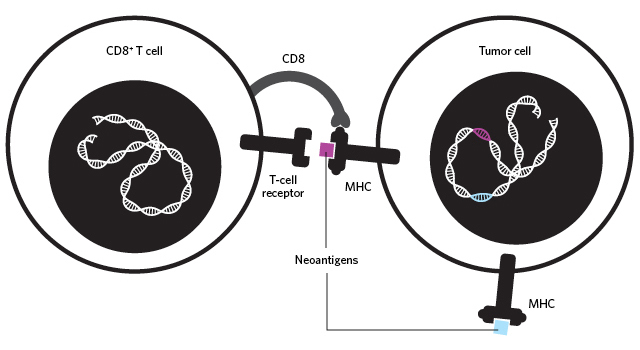 As tumor cells divide, they accrue mutations that result in modified or novel peptide sequences that are unique to the cancer. Known as neoantigens, these tumor-specific proteins could be the key to developing effective cancer therapies.
As tumor cells divide, they accrue mutations that result in modified or novel peptide sequences that are unique to the cancer. Known as neoantigens, these tumor-specific proteins could be the key to developing effective cancer therapies.
Cancer typically develops from a single cell that, as it divides into a clonal population, accumulates function-altering mutations in the genes that control cell growth, survival, and differentiation. Missense mutations, frameshifts, translocations, and mRNA splicing variants, as well as mutations that influence posttranslational processing such as phosphorylation and glycosylation, can all lead to molecular changes that can be recognized by the T cells tasked with detecting foreign peptides.
Receptors on the surface of cytotoxic T cells recognize peptides presented by major histocompatibility complex (MHC) molecules on the tumor cell membrane. CD8 acts as a T-cell co-receptor that facilitates antigen recognition. MHC-bound peptides that differ in sequence—even by a single amino acid—can be bound by appropriate T-cell receptors and targeted for destruction.
 THE SCIENTIST STAFF
THE SCIENTIST STAFF
















